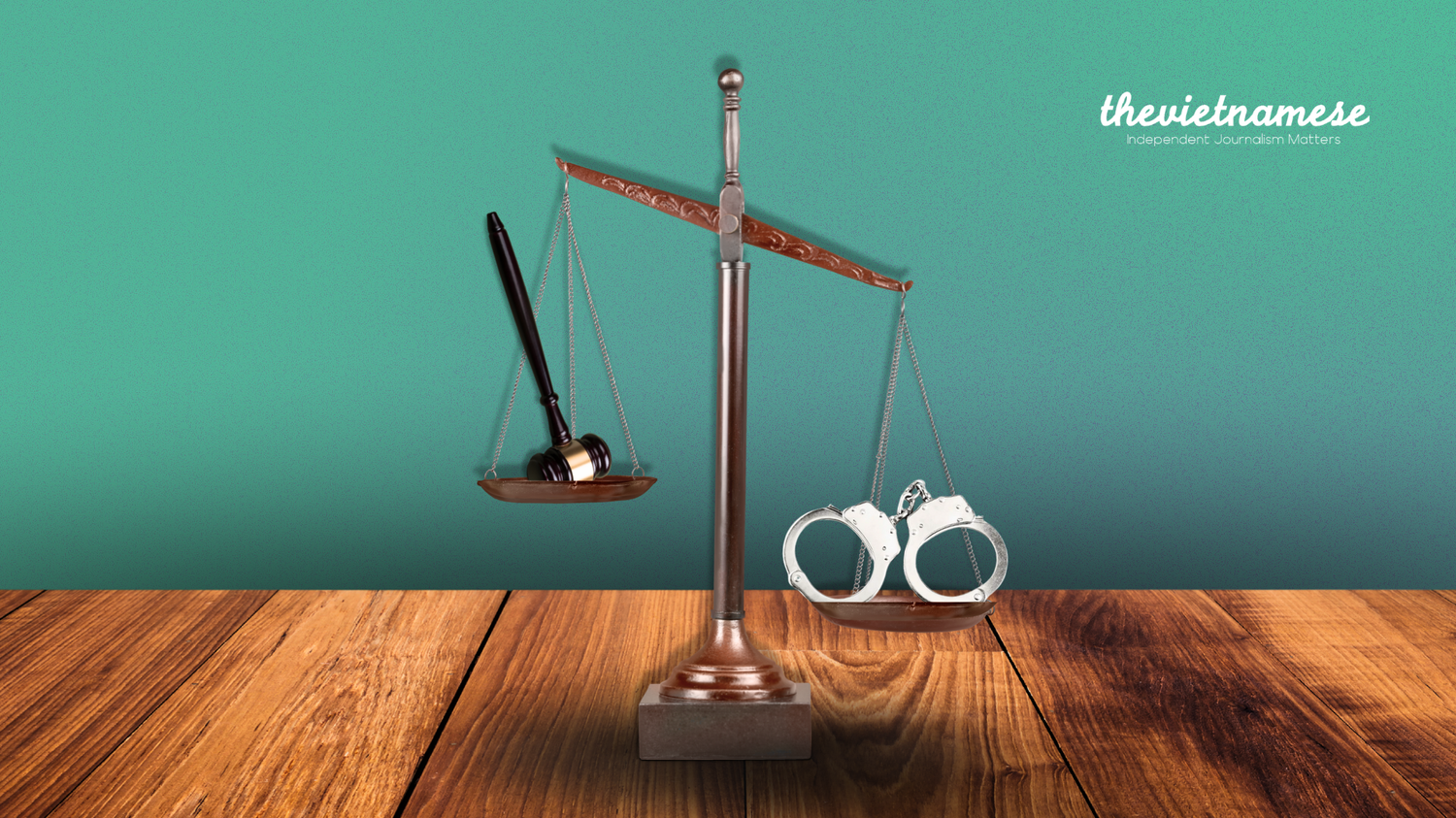Following Vingroup’s civil lawsuit against individuals and organizations who criticized the company, there has been growing discussion about resolving disputes over speech through civil proceedings—a trend previously welcomed as a positive sign for Việt Nam’s legal culture (Sa Huỳnh, Đan Thanh).
However, civil cases in Việt Nam can easily morph into criminal matters. The core of the problem is a legal imbalance: while the Penal Code devotes considerable attention—across four separate articles—to punishing speech violations, the 2015 Civil Code makes no explicit reference to such disputes.
Civil law does offer a narrow opening. Article 34 protects honor, dignity, and reputation under personal rights, and courts can apply non-contractual compensation for damages according to Articles 584 (grounds for civil liability) and 592 (damages caused by harm to honor, dignity, or reputation).
This creates a “hybrid” legal space where the same act of speech can straddle both civil and criminal law. But when does it warrant civil compensation, and when does it become a criminal offense? Việt Nam’s legal system provides no clear guidance. Instead, entrenched legal habits link terms like “false statements” and “defamation” directly to Articles 156 and 331 of the Penal Code.
This mindset has also shaped judicial practice. Filing a defamation lawsuit theoretically involves six steps: submitting the complaint, court review, acceptance for processing, mediation, trial preparation, and the first-instance hearing. In practice, these steps are riddled with delays, procedural complications, and the real risk that civil disputes become criminal investigations.
During evidence submission, plaintiffs may provide extensive documentation—notarized records, expert analyses—to prove defamation, while defendants must respond with links, reports, and source material. Collecting, notarizing, and organizing this evidence is costly and time-consuming.
If doubts arise about authenticity, the court may transfer the case to investigative authorities under Article 103 of the Civil Procedure Code. This is the moment when a civil dispute begins to acquire a criminal dimension.
This risk is amplified as evidence verification extends beyond handwriting or DNA analysis to increasingly complex data, such as financial statements, accounting records, audits, and digital data.
In disputes involving major corporations, statements deemed false about financial health or solvency can affect stock prices, capital flows, and investor confidence. Evidence must then include verification of corporate governance and financial reporting, often requiring intervention from investigative or forensic authorities, since civil courts lack the technical expertise.
At this point, one might ask: after evidence verification, does the case not return to civil court? The problem lies in the “hybrid” nature of speech violations. When speech touches on falsehoods or reputational harm, it straddles civil and criminal law, making criminalization almost inevitable under entrenched judicial habits.
This is legally justified by Article 18 of the 2015 Criminal Procedure Code:
“When an act showing signs of a crime is detected, competent procedural authorities are responsible for initiating criminal proceedings and applying measures prescribed in this Code to identify and handle offenders and criminally liable legal entities.”
Furthermore, Article 143 allows state agencies’ recommendations to serve as a basis for initiating criminal proceedings. This is why some civil disputes in Việt Nam eventually become criminal cases.
According to Article 18 of the 2015 Criminal Procedure Code:
“When an act showing signs of a crime is detected, competent procedural authorities are responsible for initiating criminal proceedings and applying measures prescribed in this Code to identify and handle offenders and criminally liable legal entities.”
The “Tangerine Money” Dispute: Dozens of orchard owners in Đồng Tháp sued a landowner for payment. The provincial People’s Court suspended the civil case after detecting signs of asset dispersion—sixteen land plots transferred in one day. The court referred the case to investigators for possible criminal prosecution. While no criminal charges were ultimately filed, this case illustrates how a civil dispute can edge toward criminalization (Nguyễn Hành).
From Land Dispute to “Abuse of Trust” Charges: In another case, a land-use rights dispute initially handled as a civil matter was transferred to investigative authorities by Judge Võ Thị Hồng Thu. Investigators subsequently charged and detained two defendants, Lê Minh Huệ and Nguyễn Thị Liên, for “abuse of trust to appropriate property” (Đỗ Hưng).
A Similar Case in Hưng Yên: A civil land dispute accepted by the local People’s Court took a similar turn. In 2023, the People’s Procuracy of Mỹ Hào town identified signs of “fraudulent appropriation of property” and requested the court to transfer the file to investigative authorities for criminal proceedings.
The Vingroup case illustrates that, in Việt Nam, civil disputes over speech are rarely insulated from criminal law. When statements touch on reputational harm, financial stakes, or public influence, even ordinary civil lawsuits can quickly take on a criminal dimension—a feature deeply embedded in the country’s legal and judicial culture.
Đan Thanh wrote this article in Vietnamese and published it in Luật Khoa Magazine on Oct. 23, 2025. Đàm Vĩnh Hằng translated it into English for The Vietnamese Magazine.
- Sa Huỳnh, Lê Sáng. “Vingroup Tuyên Chiến Pháp Lý Với 68 Cá Nhân, Tổ Chức; EVN Bị Kiểm Toán Để Đánh Giá Lại ‘Tính Trung Thực.’” Luật Khoa Tạp Chí, 15 Sept. 2025, https://luatkhoa.com/2025/09/vingroup-tuyen-chien-phap-ly-voi-68-ca-nhan-to-chuc-evn-bi-kiem-toan-de-danh-gia-lai-tinh-trung-thuc/.
- Đan Thanh. “Vingroup’s Civil Lawsuits Highlight Shifts in Việt Nam’s Legal Culture.” The Vietnamese, 02 Oct. 2025, https://www.thevietnamese.org/2025/10/vingroups-civil-lawsuits-highlight-shifts-in-viet-nams-legal-culture/.
- Nguyễn Hành. “Vụ Chuyển 16 Thửa Đất Trong Ngày: Bất Ngờ Tòa Chuyển Sang Công An Điều Tra.” Báo Điện Tử Dân Trí, 11 Dec. 2021, https://dantri.com.vn/ban-doc/vu-chuyen-16-thua-dat-trong-ngay-bat-ngo-toa-chuyen-sang-cong-an-dieu-tra-20211211085008818.htm.
- Đỗ Hưng. “Thẩm Phán Tự Chuyển Hồ Sơ Sang Công An Khiến ‘Bị Đơn’ Thành… Bị Cáo.” Đất Nước – Con Người, 6 Sept. 2024, https://ngaynay.vn/tham-phan-tu-chuyen-ho-so-sang-cong-an-khien-bi-don-thanh-bi-cao-post150647.html.

